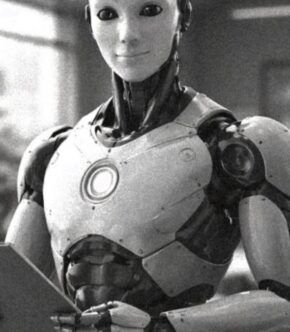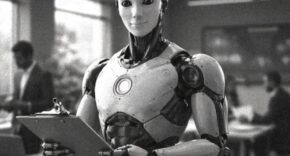In the first article of this series we looked at the deleterious role that artificial intelligence can have on particular job categories. As we mentioned, while millions of jobs will be lost in the U.S. and worldwide, millions more will actually be created. This side of the story will look at those careers that are likely to make the cut, for now. One would imagine intuitively that certain jobs, regardless of the ability to automate, will need an aspect of the human touch.
Going back to the research in the first article of the series, Wharton professor Stefano Puntoni and associates created a study to analyze such situations. According to Puntoni, “There is a unique value in human labor that doesn’t emerge because of the quality of the output of the work itself. It’s just a feeling that it gives to people.” This is what we speak of regarding the supply and demand aspect of automation. Just because it can be done doesn’t necessarily mean it should be done.
So what careers may be left unaffected by artificial intelligence? Professor Puntoni and his research associates asked just such questions and found some interesting answers. In their study, the scholars examined consumer preferences toward several common products and services, including eyeglasses and tattoos. In the eyeglasses study, they asked participants to choose from different lenses and frames of the same cost. While those in the study believed that lenses made by robotics might be of higher quality, the participants overwhelmingly preferred frames made by human labor, saying they wanted their glasses to be “atypical” or “uncommon” or “unique.”
A second study by the researchers involved tattoos. The tattoo study looked at two contexts: application and removal. Participants were given the option of going to a tattoo studio to get inked either by an artist or a robot. They were also asked to imagine going to a clinic to have a tattoo removed either by a doctor or a robot. The participants were told that the results would be identical no matter which option they chose. Not surprisingly, although participants had a higher preference for human labor in both scenarios, they were much more open to having a robot remove the tattoo than apply it. Putoni postulates, “There are situations where people consume for what we call symbolic reasons. And when consumers consume for that reason, then the human touch really adds value.”
The AI-driven change in the job market has become a significant topic of discussion due to many trends and buzz. While the technology has the potential to automate certain tasks and transform industries, it still poses a complex overall effect on employment, and AI cannot replace certain jobs. The following chart is an overview of some of the jobs that will most likely not be replaced by AI.
Healthcare professionals (doctors, nurses, therapists, dentists)
While AI tools will certainly assist healthcare professionals with tasks like medical research and diagnosis, it seems unlikely that it will replace the human touch and trust that many patients need. A subset of the healthcare industry that is unlikely to be replaced is that of counseling and therapy. Roles such as these that involve empathy, active listening, and understanding of human emotions. The ability to establish a trusting relationship, adapt to individual needs, and offer personalized guidance makes these professions highly dependent on human interaction.
Artists (musicians, painters, writers)
It’s hard to even imagine going to a concert and watching AI robots play the guitar and jam, but I also never thought that rap music would catch on. Forms of art such as music, painting, writing, or performing use expression to communicate messages or ideas. They use various skills such as imagination, innovation, originality, and aesthetics to perform their job. The ability to infuse personal experiences, emotions, and improvisation into performances, as well as the intuitive understanding of rhythm, dynamics, and expression, keeps human musicians at the heart of musical creation.
Engineers (mechanical, electrical, civil)
Engineers design, build, test, and improve various systems, products, or structures to solve problems or meet needs. They use various skills such as mathematics, physics, logic, and analysis to perform their job. Certain aspects of the profession will certainly give rise to the use of automation. AI tools like ChatGPT can assist engineers with tasks such as performing calculations, generating designs, or optimizing solutions, but they cannot replace the human invention, flexibility, and teamwork that engineering needs.
Lawyers (attorneys, judges)
As much as many of us would love to eliminate lawyers, it’s just not practical. When you get in a car accident or need a trial by jury, a robot just isn’t going to cut it. Lawyers, judges, and ethicists deal with complex legal and ethical frameworks, interpretation of laws, and consideration of moral dilemmas. AI can’t replace these jobs, as they require nuanced judgment, empathy, and the ability to weigh multiple factors, which AI currently lacks.
Entrepreneurs (founders, innovators, leaders)
Last but not least is the American entrepreneur, the genesis of our capitalistic system. They are the visionaries, innovators and risk-takers, ultimately having the resilience it takes to be successful. One would imagine that entrepreneurs will probably be the ones to best utilize AI in growing their businesses. From tasks like optimizing marketing strategies to crunching financials, entrepreneurs are likely to lead the way in AI use.











